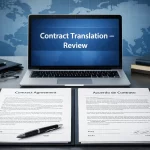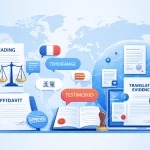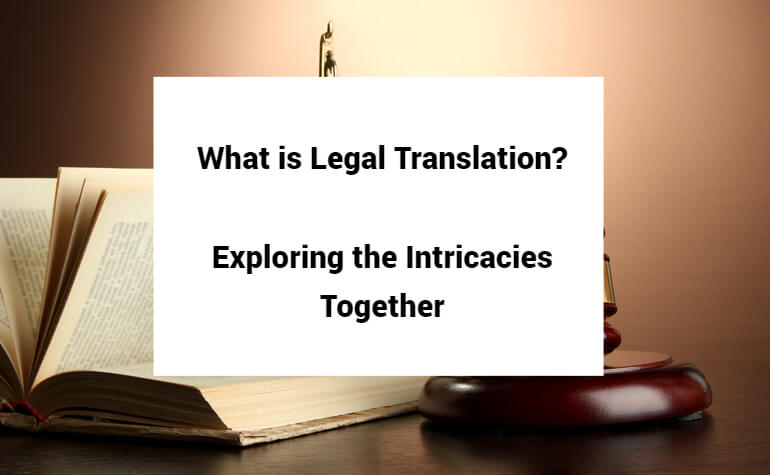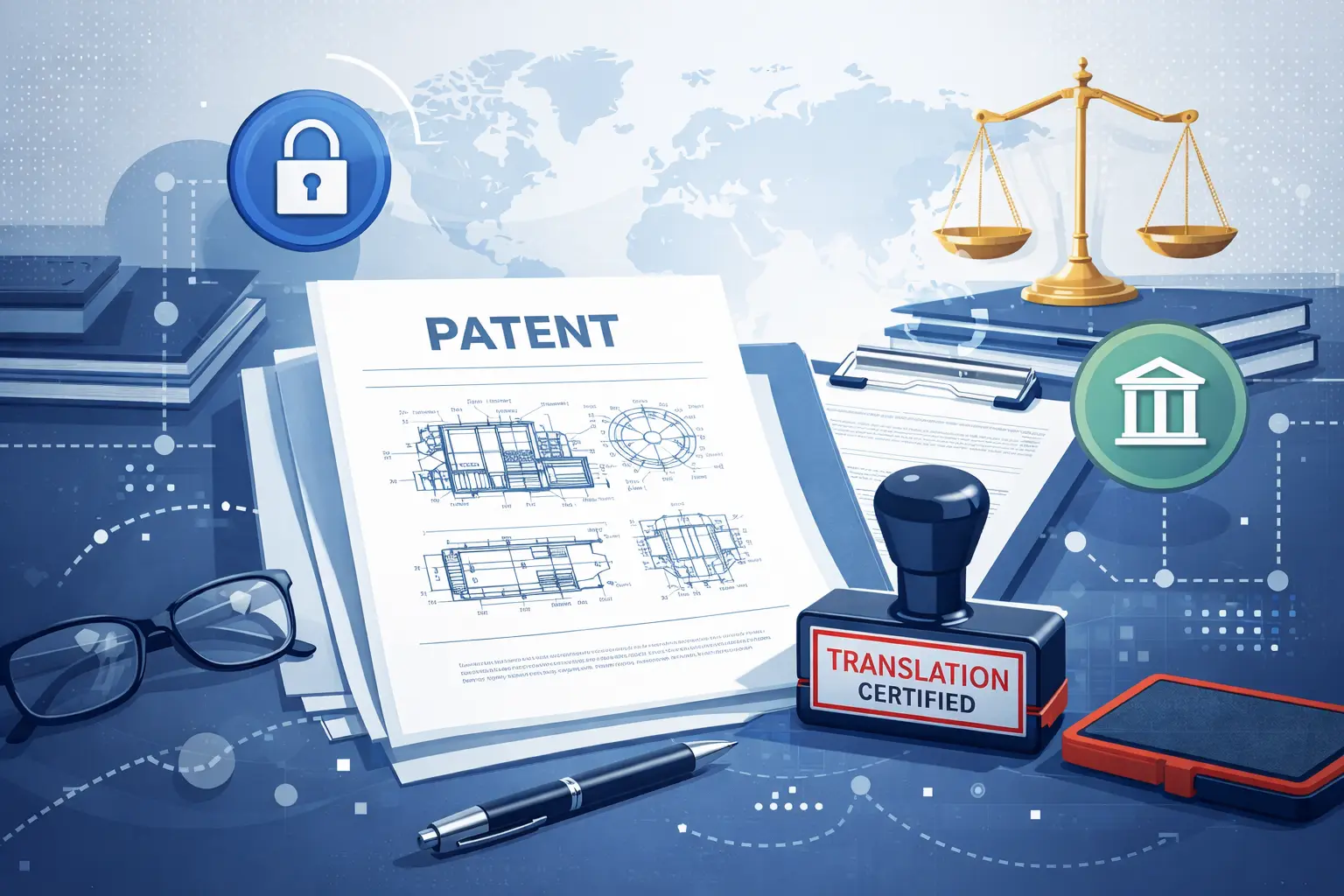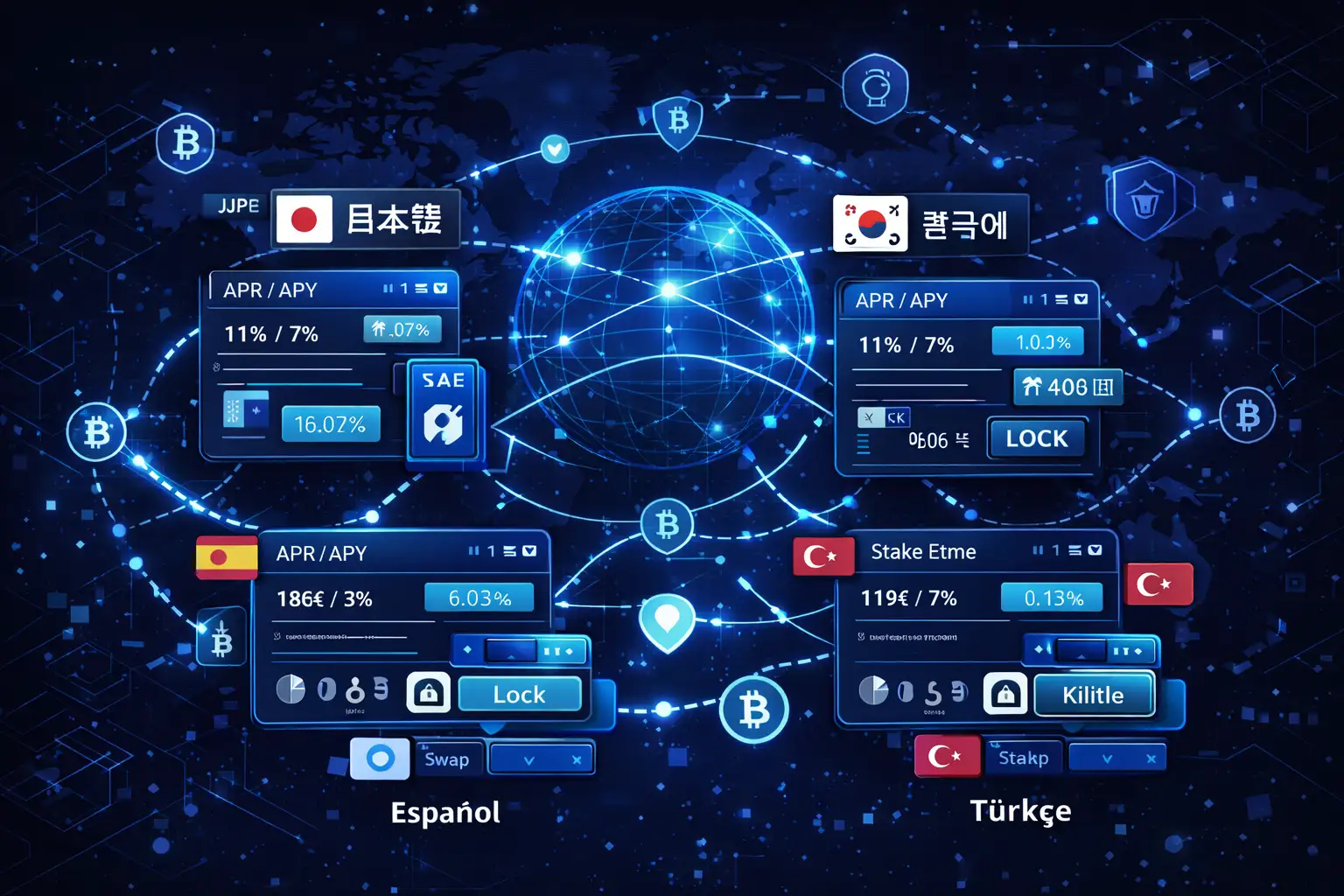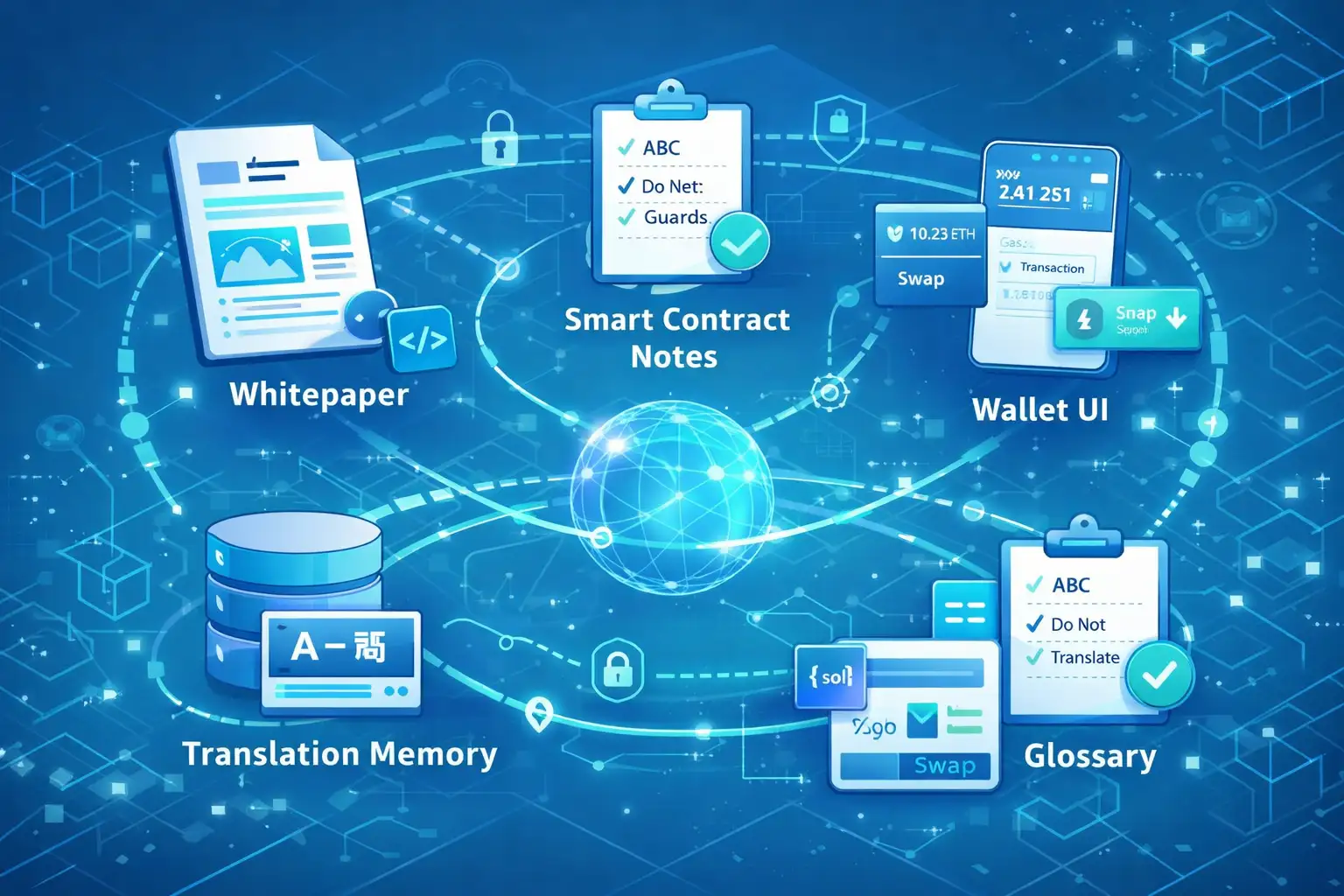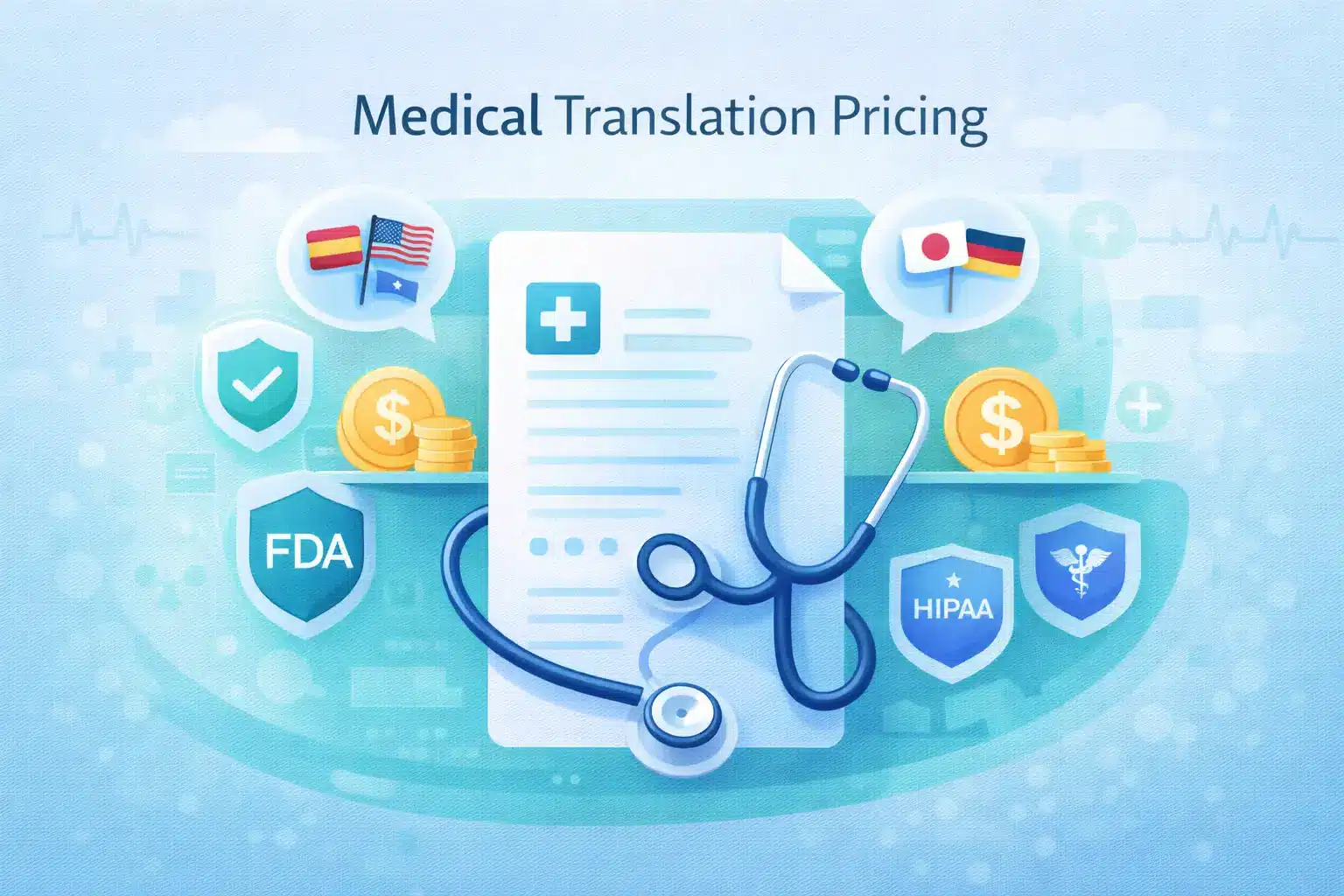Did you know there’s an art form that’s not only challenging but also incredibly crucial to our globalized world? This art is a legal translation! Let’s learn about it together and uncover what it takes to do that.
In a few words, legal translation is the act of changing the language of legal files and phrases from one language into another. Remember those times in courtroom dramas when a vital piece of evidence is in a different language and a skilled translator steps in?
That’s a legal translation in action! But it isn’t just limited to high-stakes criminal cases – it’s also used in daily scenarios such as contracts, agreements, and legal proceedings.
Fun Fact: The worldwide legal services market was worth $713.12 billion in 2021, so you can imagine the immense need for legal translations!
Importance of Legal Translation
Legal translation plays a significant role in today’s increasingly interconnected world. It aids in facilitating communication between different language speakers in the legal sphere.
Imagine for a moment a Spaniard having to follow court proceedings in China. Unless they’re fluent in Chinese, they’d be lost without a skilled legal translator. This is exactly where the magic of legal translation comes in, ensuring no misunderstandings occur, critical information is appropriately conveyed, and justice isn’t compromised due to a language barrier.
So, some of the reasons why it’s essential include:
- Ensuring accurate communication during international legal processes;
- Cementing cross-border justice and fairness for individuals who might not speak the official language;
- Enhancing global cooperation in legal matters.
Regardless of our backgrounds or languages, we all deserve equal access to understanding our rights and obligations.
Challenges in Legal Translation
To translate legal terms isn’t an easy job. Let’s look at some key challenges that legal translators frequently encounter:
- Cultural differences
Cultural differences can play a significant role in legal translation. A study by Genna and others in 2019 showed that legal culture, just like any other part of the culture, is influenced by a society’s history, customs, and traditions.
Thus, a legal speak translator must often navigate the complexities of:
- Legal concepts that may not have a directly equivalent term in the target language;
- Differences in legal systems, may cause misunderstandings if not properly translated.
Did you know? The world has primarily two major legal systems: civil law and common law. Civil law is based on written codes, while common law relies on precedent through previously decided cases – both have variations that require the attention of a skilled legal translator.
- Variations in legal terms
Legal terms can greatly differ between countries. For example, phrases like “beyond a reasonable doubt” in common law countries might not have a similar phrase in civil law countries. Legal translators must understand these differences and convey the intended meaning to ensure clarity and avoid confusion.
- Absolute precision
One of the most pressing challenges in legal translation is the indispensable need for absolute precision. Any ambiguity or mistake in translation can lead to severe consequences in legal proceedings, as evidenced by the South Korea-EU Free Trade Agreement (FTA) deal. This level of precision requires the utmost attention to detail, as well as expertise in the source and target languages’ legal systems.
Essential skills for a legal translator
Due to its importance, the legal translation industry is rapidly growing, with global language services projected to grow annually by ~6.6% from 2021 to 2026. Being a legal translator requires not only language proficiency but also an array of other essential skills. Here are must-have skill sets.
- Language Proficiency
Legal translators must master both their source and target languages. According to a study by Larson (1984), it is crucial for translators to have a high command of linguistic aspects, including grammar, syntax, and idiomatic expressions.
- Knowledge of Legal Systems
Familiarity with the legal systems you’re dealing with is indispensable for accurate translations. A study by Peruginelli (2007) emphasizes the significance of comprehending vocabulary and concepts particular to various legal systems in order to produce accurate, error-free translations.
- Attention to Detail
Due diligence is essential when translating legal documents because even the tiniest error can result in serious misconceptions. According to a 2002 study by Molina on the translation of English-Polish contracts, it’s critical to pay attention to both terminology and structure to avoid translation mistakes that could impair a document’s legal validity.
- Confidentiality
Since they frequently deal with sensitive data, secrecy is of utmost importance to legal translators. In order to protect their clients’ privacy, translators should follow a rigid code of ethics and professional conduct, according to a 2017 study by Viljanmaa and her team. Responsible data processing and the upkeep of secure communication routes are required for this. Seasons translation companies like Circle Translations check all the items on this list while also providing affordable legal translation services to businesses of all sizes.
Tips for Effective Legal Translation
Do you want to improve your legal translation skills? Here are some advice for newcomers.
- Understand the Legal Systems
Understanding the legal systems of the source and target languages is necessary for successful legal translation. According to a study by Gotti (2021), it is essential for correct translation to comprehend the complexities of other legal systems and their associated terminologies. Spend some time learning about and investigating the legal systems of both the source language and the target language. It would be necessary to read legal pleadings, law books, and other materials that offer insights into these frameworks.
- Don’t Translate Literally
Translating each word by itself can make you lose the overall idea or meaning. Postan (2022) believes that translators should focus on getting the main message across instead of being too literal. To translate a legal document correctly, be aware of the context and aim to understand its main goal.
- Keep Improving Your Skills
Any job, including legal translation, needs continuous learning. It’s important to keep up with changes in legal terms and concepts in both languages. And you are not alone! In a 2019 LinkedIn survey, 94% of workers said they would stay longer at a company if it helped them learn and grow. Join workshops, webinars, or courses on legal translation to keep boosting your skills and understanding. Reading the latest articles in your field can be very informative too.
- Team Up with Other Experts
By talking to professionals in similar fields, like law, you can gain a better understanding of complex ideas. Ask for advice from lawyers or other experts who know about the legal area you’re interested in.
Final Thoughts
We have delved into the realm of legal translation, exploring its significance, challenges, and the essential skills required. As we conclude, let’s briefly recap what we have learned: Legal translators bravely confront and overcome challenges, playing a pivotal role in helping individuals comprehend their rights and responsibilities in various languages. This, in turn, facilitates a better understanding of international court cases, fostering fairness and justice.
We would love to hear your thoughts on this matter. Have you ever been involved in translating legal documents? Share your insights and experiences with us.
When it comes to legal translation, look no further than Circle Translations. As a leading legal translation agency in the field, we pride ourselves on delivering unparalleled quality and accuracy. Our team of professional legal translators is ready to provide certified legal document translation services and is dedicated to ensuring that your words are perfectly conveyed, providing you with peace of mind and exceptional service.
Subtitles

Professional and Accurate Subtitle Services for your Videos.
- Video subtitles specifically tailor-made for improving accessibility.
- Using highly experienced subtitlers with years of industry experience.
- Professionally written and expertly timed.
Translation

We help the world’s top companies translate their content in over 73 languages!
- We localize content for internet websites, games, travel, cryptocurrencies, and more
- Expand your global audience by adding different languages.
- We work only with qualified translators and experienced content creators
Audio translation

Ensuring full accessibility for Blind and visual impaired audiences.
- Visual descriptive events as they occur in the video.
- Working with top audio describers to perfectly describe what is happening on-screen
- Professional sound recording.




